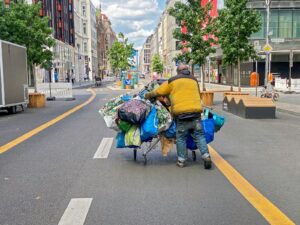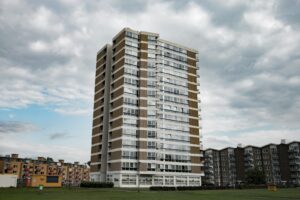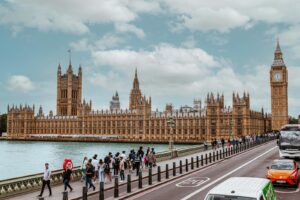Rob Stewart has been the leader of Swansea Council since 2014. He spoke to Environment Journal about how to get the shelved £1.3bn tidal lagoon project back on track, Brexit woes, and his response to accusations there are too many student tower blocks in the city centre.
In June, the UK Government rejected proposals for the Swansea tidal lagoon, calling it ‘too expensive’. Is the project dead in the water?
It absolutely can still go ahead. The only thing that’s been ruled out is the previous funding model. The lagoon project is still viable but the funding model will need to change. We’re looking at turning it from a solely energy-based project to widening the breadth of it.
There’s a task force established at the moment which is being led by Swansea Council. The energy levels of the lagoon allow it to be under the control of the Welsh Government, making it a devolved matter. So we are working to see how the lagoon can be delivered slightly differently but as a Welsh project.
Multinationals and others from around the world have been invited to come and take a look at it to see how they can help deliver the project.
There’s a massive area of water which would be enclosed which could be home to floating solar. That would improve the energy output of the lagoon. We’re also looking at infrastructure additions. A large wall will be built which could become a new roadway and we’re also looking at new housing and retail developments on the wall. We also think we can enhance the tourism and marine agricultural offerings of the lagoon.
The other thing that needs to be tackled is looking at things like private wire and direct supply, and how the energy from the lagoon is transmitted to businesses and retailers.
There are a number of big organisations out there that are looking to source entirely green energy, so supply to the public and private sector is what we’re looking at.
Swansea has benefitted from significant EU funding over the years. Are you concerned with what the Government will replace it with?
Our concern going forward is that whilst the Government is talking about a ‘shared prosperity fund’, we don’t have the details on how that funding will be allocated and administered. We believe these allocations should be handled by the Welsh Government, and the process of allocation should continue to be on the basis of need and not change to a bidding type model, which is what the Government does for lots of grant money that it hands out. We believe that would be unfair to Swansea and most of Wales.
What issues do you have around housing in Swansea?
We need to build over 10,000 new homes in the area per year. From our perspective, we’ve returned to council house building for the first time in 40 years. What we’ve been able to achieve is council house building built to a Passive House quality. These have energy bills of less than £70 a year so not only are we becoming a major housebuilder but we’re also delivering homes with very low energy bills. In the future we hope they will be energy positive with the homes becoming mini power stations, delivering energy back to the grid.
We want to remove energy bills from people who would otherwise be in fuel poverty.
We also want to deliver a full range of council housing, social housing and affordable housing. We want to get people on the housing ladder.
What affordability requirements do you place on the large developers?
Within our Local Development Plan, we have a target of 30% affordable.
If they are unable to meet this by financial or viability reasons, then they can build social housing elsewhere. We can give them the flexibility to build in places that are more suitable.
Some people have complained that there are too many student tower blocks in Swansea city centre. Is this fair?
It’s a hot topic but we have two universities here and both are delivering big new campuses. We will see a significant uplift in the number of students coming here.
At present we’ve seen a number of private homes converted into student accommodation but we don’t have enough purpose-built student accommodation in the city centre. It’s part of our regeneration strategy in the city. There are tower blocks under construction in the city but it’s to meet the demand that’s coming. If we didn’t deliver these blocks then there would be more impact on the existing communities in and around Swansea.
The council recently granted planning permission for a new music arena. Why does Swansea need one?
It’s hugely important in terms of giving people reasons to visit the city. We’re re-purposing what was a 1970’s city centre, largely focused on retail, to one that’s focused on a wide range of activities, including a much enhanced retail and leisure offering.
There will be 200 events at the arena each year and there should be an uplift for the local economy of £60m a year. It’s hugely important for the regeneration of the city.
















Leave a Reply